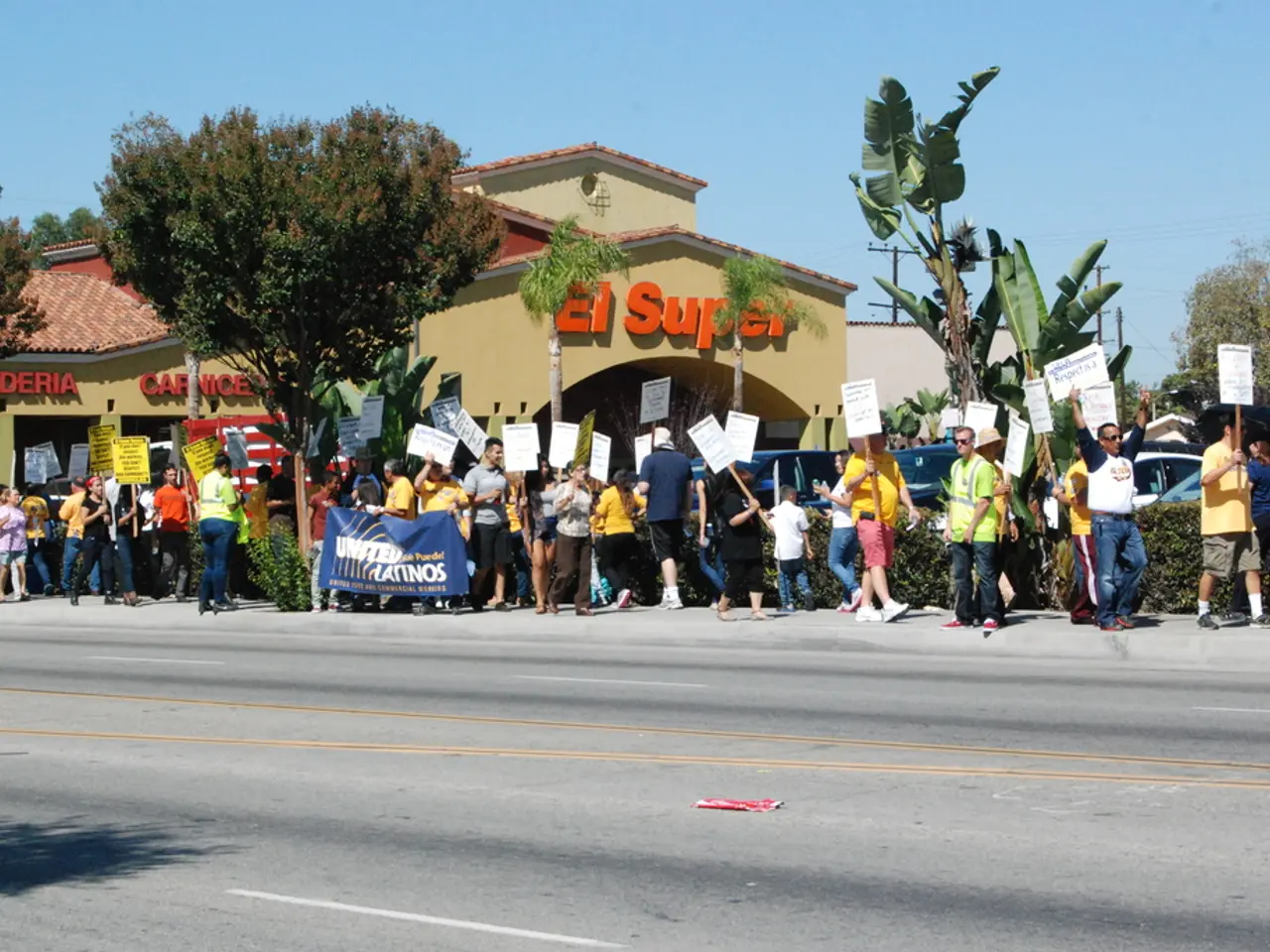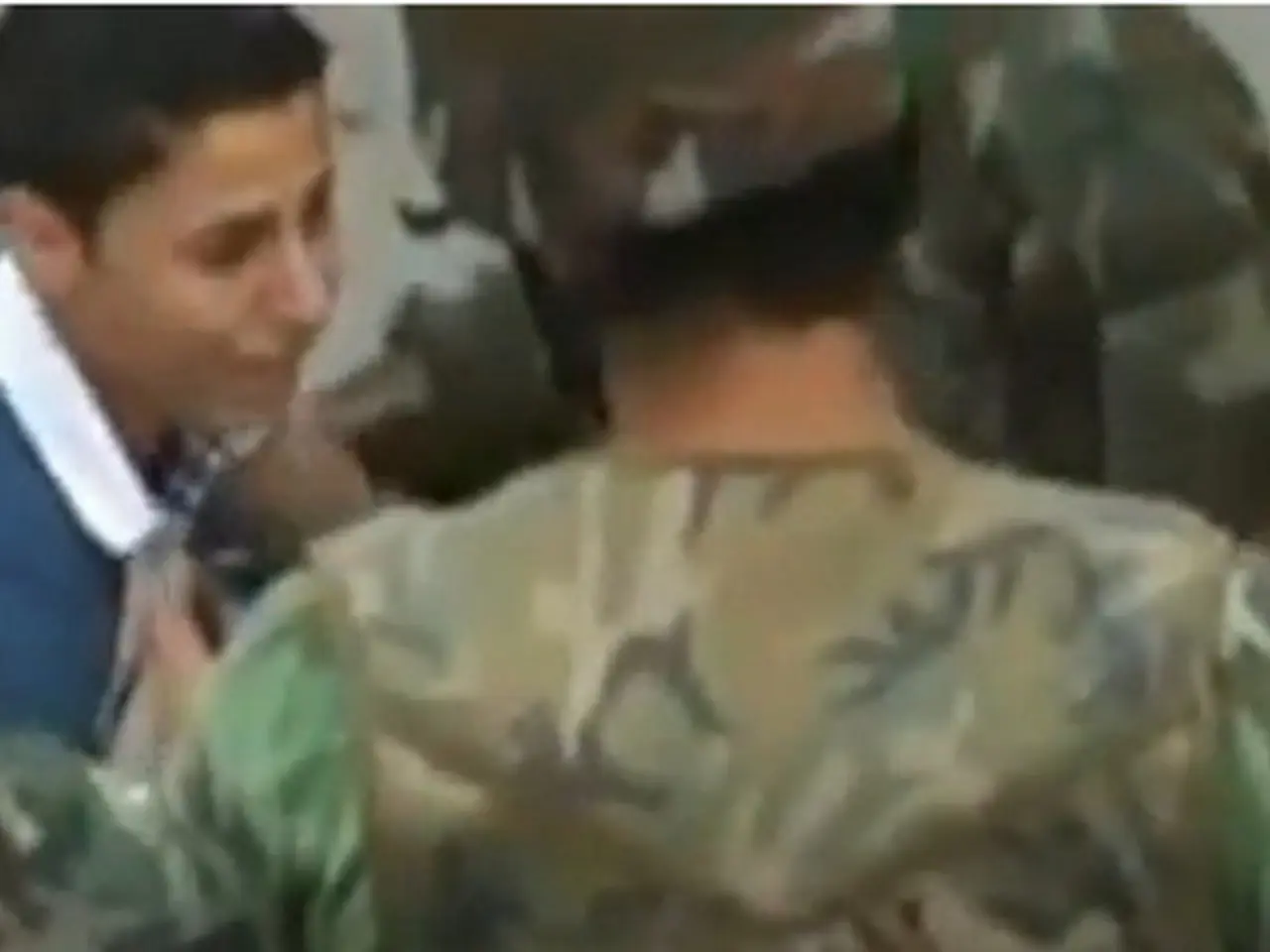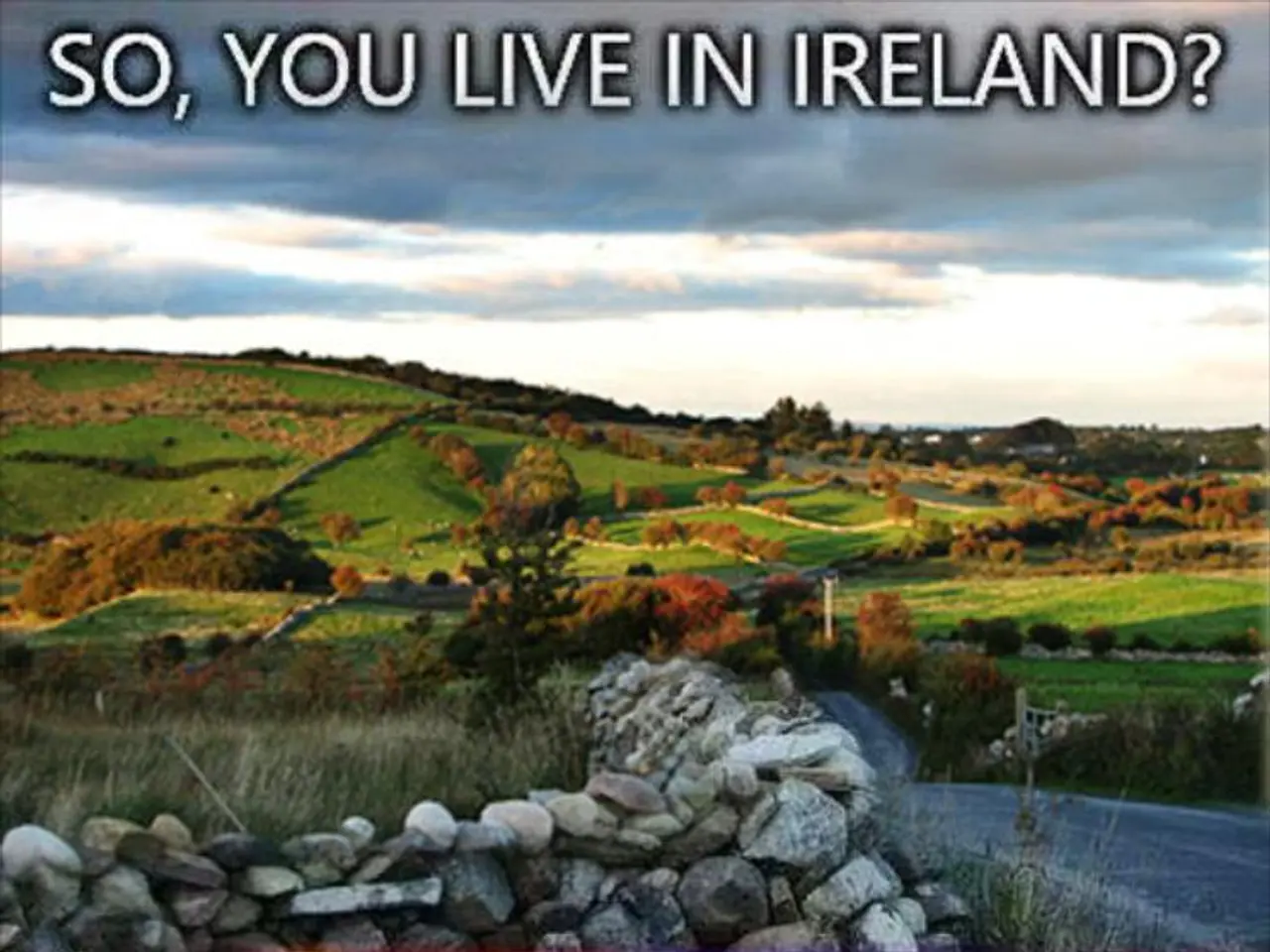Global Conflict Spheres
In the current political landscape of Germany, mid-2025, the Alternative for Germany (AfD) has emerged as a significantly strengthened party. The far-right party, known for nationalism, Euroskepticism, and Islamophobia, surged to 20.8% of the vote in the February 2025 federal election, securing a strong second place behind the CDU/CSU.
The AfD's rise has been particularly pronounced in East German states, where the party won nearly one-third or more of votes and nearly all constituency seats. In some opinion polls during April 2025, the AfD either outpaced or matched the CDU/CSU, becoming one of the most popular parties nationally.
In Saarland, the AfD has been making waves. AfD politician Werner Schwaben has been a deputy mayor in the West district for a year. The established parties in Saarland might face a potential surprise victory from the AfD in the 2027 state elections.
Recently, an incident at the Elisabeth-Luders-House in Berlin's government district made headlines. Princess Gloria von Thurn and Taxis hosted an ARD summer interview with AfD co-chair, Alice Weidel, and moderator Markus Preiß. The interview was disrupted by persistent heckling and monotonous chants, amplified by loudspeakers and megaphones, making it barely understandable. Such disruptions are considered indecent and reflect helplessness and panic on the left.
Lothar Warscheid, a Dipl. Commercial Teacher from the University of Saarland and an economic journalist, wrote an article about the situation of the AfD in Saarland and its potential impact on the 2027 state elections. The article, published on a website, will be a regular bi-weekly column by Lothar Warscheid, titled "Warscheid's World."
The public perception of the AfD is polarized. While a notable segment of the population, especially in East Germany, strongly supports the party's right-wing and anti-immigration platform, many others remain opposed, viewing the party as extremist or a threat to democratic norms. This polarization is reflected in election results and opinion polls showing the AfD as a major force, yet still marginalized in official coalition politics.
The CDU/CSU, led by Chancellor Friedrich Merz since May 2025, won the federal election but with reduced support. Merz faces internal party difficulties and broader government challenges in countering the AfD's rising popularity. Other mainstream parties generally maintain a political "firewall" isolating the AfD, refusing formal coalitions or cooperation, especially at the federal level.
The AfD's European presence has also faced pushback. On the European level, the party has been expelled or faced pushback from more moderate conservative groups due to its far-right links, such as its earlier cooperation pact with Austria’s Freedom Party (FPÖ).
The article by Lothar Warscheid will continue to explore the complexities of the AfD's rise and its impact on Germany's political landscape. Stay tuned for more insights in "Warscheid's World."
- News articles about war-and-conflicts and crime-and-justice debate the potential impact of the Alternative for Germany (AfD) on Germany's political landscape, as the party surges in popularity nationwide, particularly inSaarland.
- In general-news discussions, the changing political dynamics in Germany, following the rise of the far-right AfD, are closely analyzed, withfocus on their implications on the 2027 state elections in Saarland.





